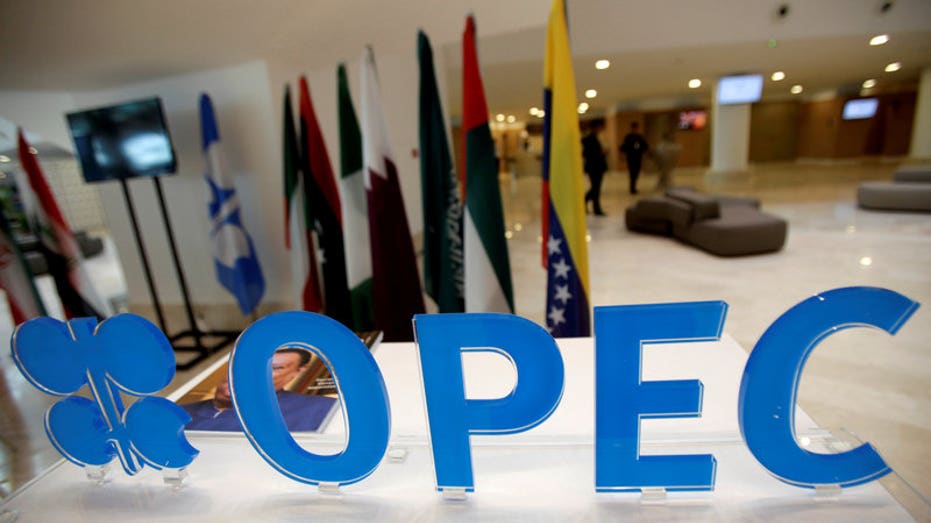Oil prices dropped about 7% to settle at their lowest level in more than a week
Hopes for progress in peace talks between Russia and Ukraine helped ease some concerns over risks to energy supplies
FOX Business Flash top headlines for March 28
Here are your FOX Business Flash top headlines for March 28.
Oil prices dropped about 7% to settle at their lowest level in more than a week, as a worsening COVID-19 outbreak in China threatened to hurt energy demand. Hopes for progress in peace talks between Russia and Ukraine helped ease some concerns over risks to energy supplies.
West Texas Intermediate crude for May delivery dropped about 7% to settle at $103.63 a barrel on the New York Mercantile Exchange. May Brent crude, the global benchmark, sank 6.8% to end at $106.96 a barrel on ICE Futures Europe.
GAS PRICES: FUEL TYPE CAN SAVE YOU MONEY AT THE PUMP
"Global markets seem to be a bit nervous about the effectiveness of China's zero-tolerance policy toward Covid and the potential for more demand and supply chain disruptions as we might be only dealing with the tip of the iceberg," said Stephen Innes, managing partner at SPI Asset Management, in a note to clients.
Meanwhile, the United Arab Emirates' energy minister doubled down Monday on an oil alliance with Russia that's helped buoy crude prices to their highest in years as Moscow's war on Ukraine rattles markets and sends energy and commodity prices soaring.

OPEC logo is pictured ahead of an informal meeting between members of the Organization of the Petroleum Exporting Countries (OPEC) in Algiers, Algeria. (REUTERS/Ramzi Boudina)
The minister said Russia, with its 10 million barrels of oil a day, is an important member of the global OPEC+ energy alliance.
"And leaving the politics aside, that volume is needed today," Suhail al-Mazrouei said. "Unless someone is willing to come and bring 10 million barrels, we don't see that someone can substitute Russia."
Led by Saudi Arabia and Russia, the alliance has the capacity to increase oil output and bring down crude prices that have soared past $100 a barrel.
BIDEN KEEPING HIS PROMISE TO ‘END FOSSIL FUEL’ INCREASED GAS PRICES, RSC MEMO SHOWS
The United States, European nations, Japan, and others have been calling on Gulf Arab oil producers to do more to help bring down prices. Britain's Prime Minister Boris Johnson paid an in-person visit this month to the UAE and Saudi Arabia, where he raised the issue.
Al-Mazrouei described the OPEC+ alliance as one that is here to stay and shot down any suggestion that the UAE would strike out on its own and increase production unilaterally.
"Staying together, staying focused, and not allowing politics to kick in to this organization ... we always believe that whatever we do as countries when it comes to production and to this work, it needs always to stay out of politics," al-Mazrouei added.
CLICK HERE TO READ FOX BUSINESS ON THE GO
The OPEC+ alliance has stuck with its plan for gradual oil production increases based on a deal struck during the height of the coronavirus pandemic lockdowns when producers made deep cuts to output to make up for plummeting demand for fuel. Higher oil prices have been good for oil-producing economies. Despite efforts at diversification, Gulf Arab states continue to rely heavily on energy exports to fuel their economies.
- The Associated Press contributed to this report.




















